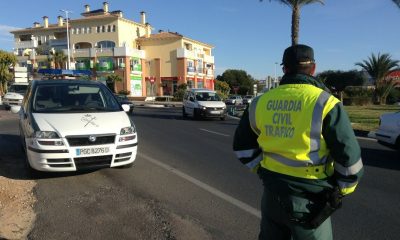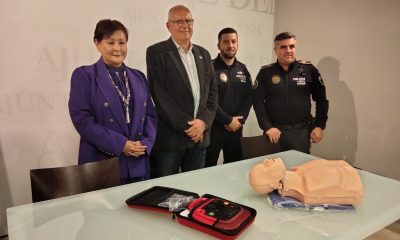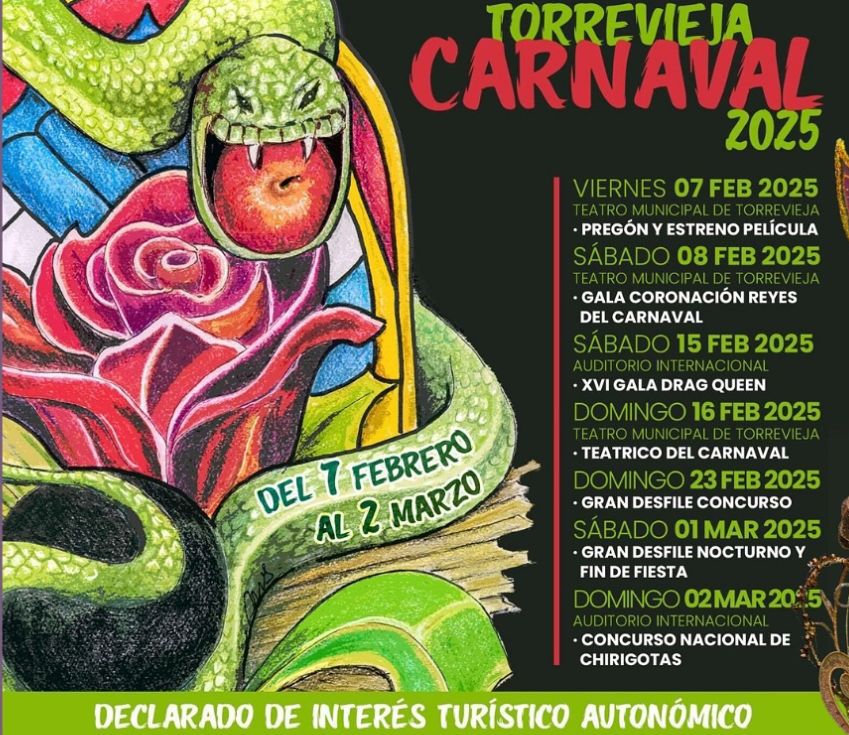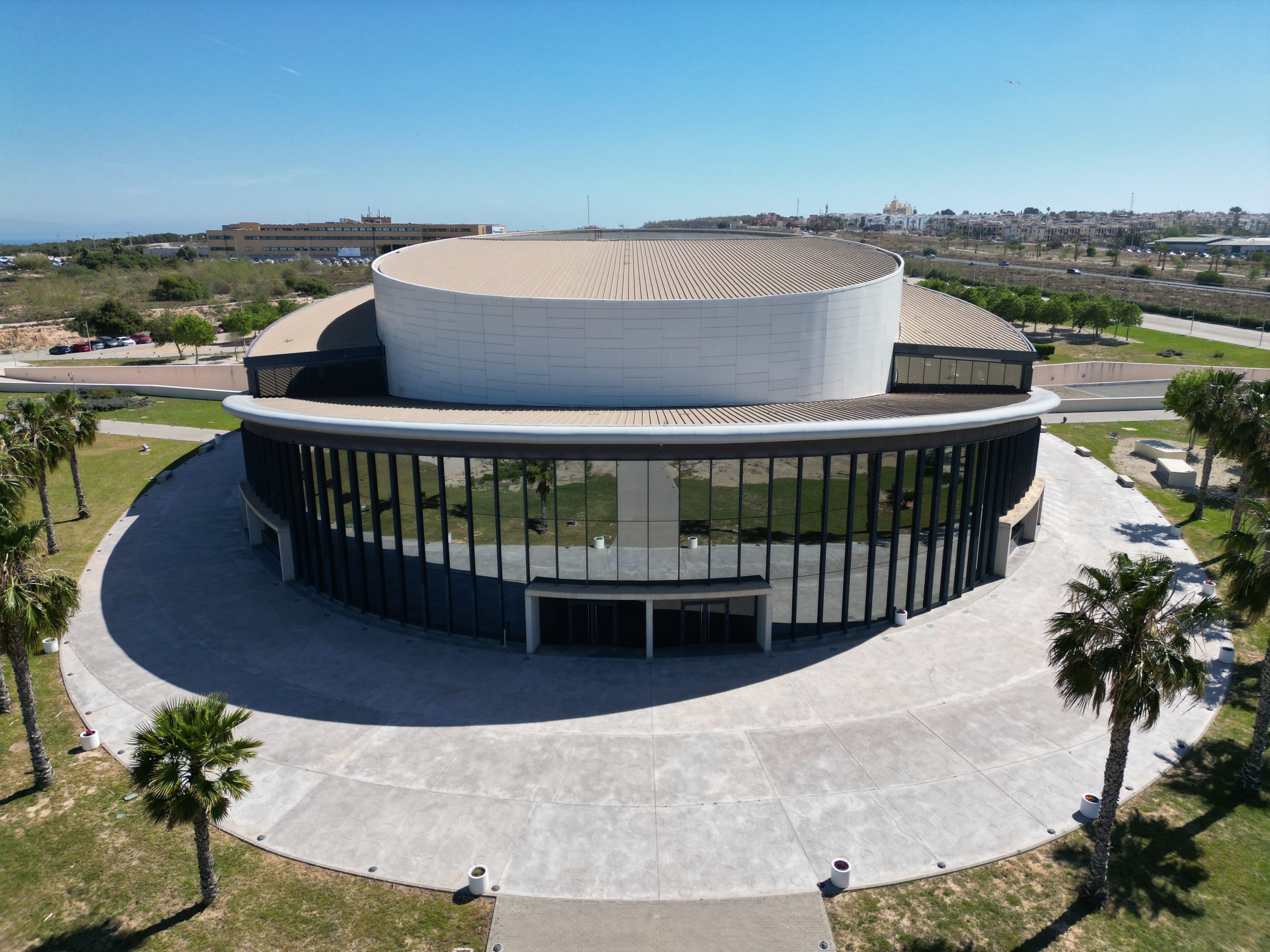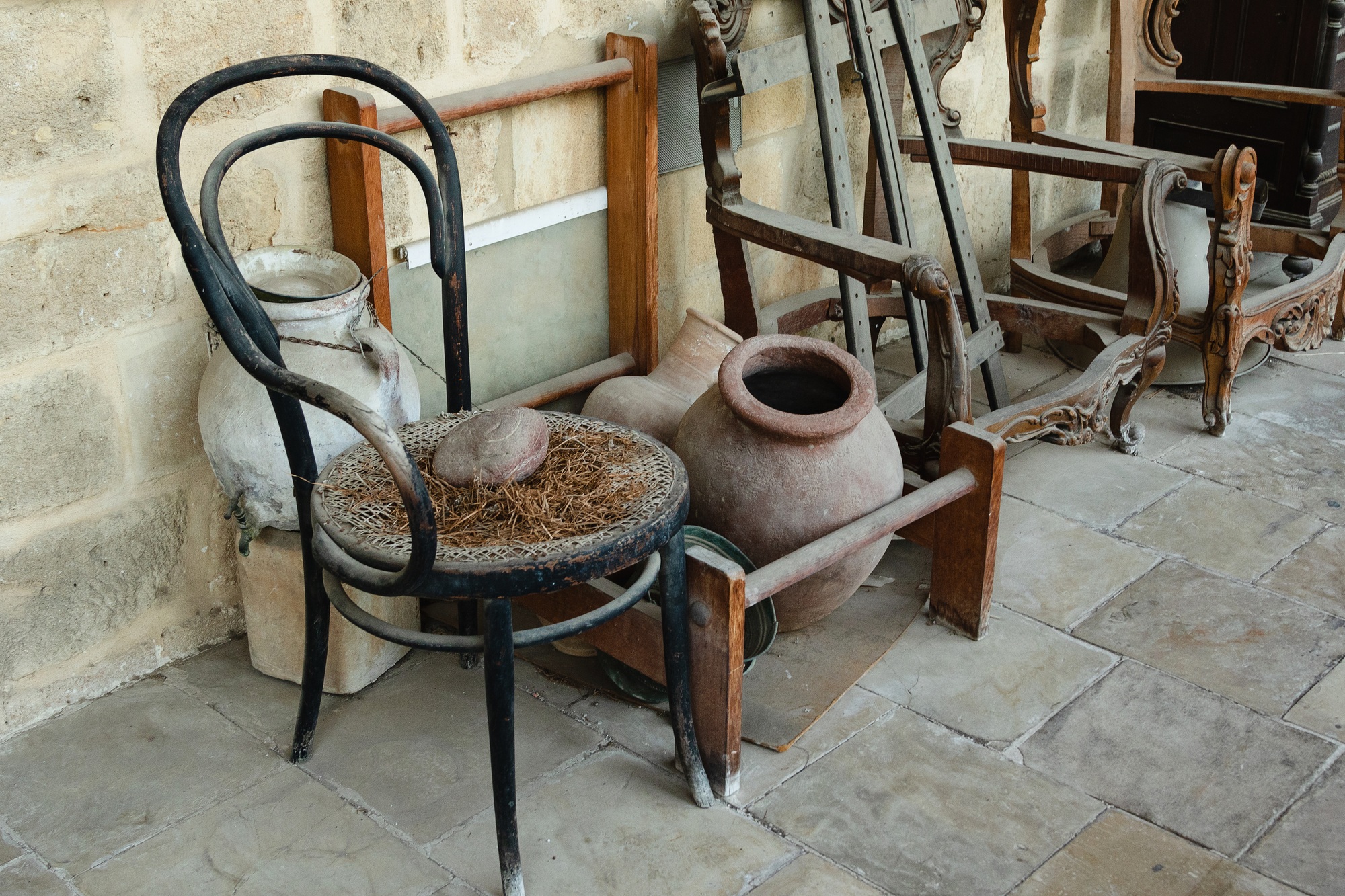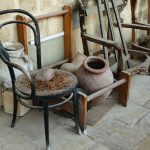Costa Blanca
Increase in fighting at Orihuela Costa High School

Fights at Playa Flamenca Secondary School or its vicinity are constantly recorded. “Everything is as bad as ever,” says one mother. The difference is that Pandora’s box was opened four months ago, following the murder of Cloe, 15, allegedly by her 17-year-old ex-boyfriend. Both young women attended the only secondary school in Orihuela Costa. She was in her fourth year of compulsory secondary education, and he was doing vocational training during the afternoon shift after dropping out of his first year of high school. Now, she says, there is a daily police presence, and parents are making complaints.
The films all follow a similar pattern: guys and girls fighting while being cheered on by the crowd. In many situations, the confrontations begin within the school and then spread to the street, or they are pre-planned and a “get-together” is organised to observe and record them in real time.
Expulsions of implicated students have occurred in recent days, but the prevalent perception is that no decisive action or measures to solve the situation are being implemented.
Local police sources confirm that they have escalated. Although cops have been working on this issue with the juvenile unit for over a year and have increased police presence, the same sources admit that it is a difficult problem to fix. Meanwhile, the centre’s management declined to comment.
After Cloe’s suspected killer sliced her throat in an alley in La Florida, the Parents’ Association stated that the school, which has roughly 1,000 kids, had been a true “breeding ground for crime” for years.
They described it as a pressure cooker, with no lack of fights, assaults, harassment, abuse, alcohol-related comas, narcotics, truancy, and firearms. In fact, at the start of the school year, a 12-year-old girl was brutally beaten and hospitalised, prompting a meeting at the Coastal Emergency Centre between the IES and the two coastal schools, the councillors for Education, Coastal, and Citizen Security, the Local Police (with their gender-based violence and truancy units), and the Civil Guard.
It was also discovered that certain people near the school give out little amounts of narcotics for free in order to “hook” young people and subsequently “recruit” them to conduct criminal crimes such as stealing cell phones or other products and trafficking in substances. In this setting, and once inside the “network,” many of them are equipped with knives and switchblades for protection.
The imprisoned minor’s surroundings were tied to a group that committed petty crimes such as theft and squatting. He frequented “the Chinaman’s house,” along with other young people who went there to do drugs and party. This unfinished residential complex has become a hotspot of disturbances in recent years, as reported by neighbours whose properties are across the street or only a few steps away.
This is one of the terraced houses on Calle Nutria that has been abandoned for more than a decade, about 500 metres from where the Guardia Civil believes the young man burnt his clothes and the knife in a semi-ruined warehouse next to a water tank on Morral Street, very close to the alley where Cloe received a cut on her neck that killed her shortly after in Torrevieja Hospital.
Discover more from Costa Blanca Daily
Subscribe to get the latest posts sent to your email.
Costa Blanca
16 arrested in Spain for paying for access to a website that featured child pornography

16 people have been arrested by Spain’s National Police for using cryptocurrency to buy access to a child pornography website on the dark web.
38 nations have participated in this global investigation, which is being directed by Germany and coordinated by Europol. As a result, 1,393 people have been identified, and 79 people have been arrested. Some of the individuals who were arrested also mistreated children. According to a statement from the National Police, the investigation is still ongoing.
Alicante, Almeria, Barcelona, Jaen, Las Palmas, La Rioja, Madrid, Malaga, Murcia, Orense, Seville, Tarragona, Santa Cruz de Tenerife, Valencia, and Zaragoza are among the Spanish cities where arrests have been made.
By hiding users’ identities and functioning as a social network, the dark web—particularly the platform under investigation within the TOR network—made it possible to buy and share illegal content.
With 91,000 videos and almost two million members, it was expanding at a rate of three videos every hour. While full films had to be paid for with cryptocurrency, initial access was free. Additionally, there were rewards for rating already-existing content or creating original stuff.
Despite the anonymity of cryptocurrency, German authorities were able to identify the buyers by cracking into the server and tracking down the payments. One person in Spain uploaded a video, and 17 others had bought content.
The National Police claim that people who purchase the content have a higher level of criminal dedication and sophisticated search techniques for illicit materials.
One of those detained in Spain was a student of computer technology who served as a distributor and had access to other platforms of a similar nature.
A detained individual in Alicante was also discovered to be a drug trafficker in possession of 700 ecstasy pills and €42,000 in cash. Several people who were arrested in Barcelona and Madrid had evidence of payment and child pornography. A suspect in Malaga confessed to the crime. A dentist in Murcia used a USB flash drive to save files.
Devices holding illegal material and proof of purchase were discovered in Almería, Orense, Seville, Tarragona, Tenerife, and Zaragoza, leading to additional arrests. One suspect had left Valencia for Paris. Another suspect in Jaén was looked into but not taken into custody. 39 minors were granted protection, and almost 3,000 electronic devices were seized globally.
Europol’s largest anti-child sexual exploitation operation was called Operation Stream. Spain, Germany, France, the United Kingdom, and the United States were among the thirty-eight participating nations. One of the world’s biggest networks for disseminating paedophile content was severely damaged by this operation.
Discover more from Costa Blanca Daily
Subscribe to get the latest posts sent to your email.
Costa Blanca
Before Easter, the new road through La Hoya should open

An extension of Avenida José Carreras the “winding road,” was dangerous and totally unconstitutional for urban planning, but it had a purpose. It linked the northeast of the city centre, the sports city, Víctimas del Terrorismo Avenue, the avenues of the Valencian Parliament, and La Mancha with the CV-905, one of the main entrance routes to Torrevieja with a daily traffic flow of 35,000 vehicles.
Since construction of the La Hoya residential complex started more than a year ago, this mode of transportation—which was intended to help people escape traffic bottlenecks in the Habaneras and Carrefour shopping areas—has been closed to the public. In addition, one of the Valencian Community’s primary markets is held in the same location on Fridays.

With two lanes in each direction, the road is one of the biggest in the entire complex, and the Torrevieja City Council has now announced that it will be ready for traffic by Easter 2025.
Completed
Torrevieja Mayor Eduardo Dolón (PP) declared that the new Avenida José Carreras would be by Easter. The avenue has apparently been completed for several months. Videos of its completed appearance, complete with all necessary amenities and moving cars, have already been made public. It is now functioning at a high capacity for traffic. It’s not like the old road.
It contains two additional roundabouts and is more than a kilometre long. Additionally, the developer has been adamant about delivering it to the City Council for commissioning. He clarified, however, that months of verification work had been carried out by municipal technologists to include all of the standards outlined in the development plan, which must also include previously unincorporated speed-reduction and signage measures.
“This is a partial approval to resolve the opening of traffic during this Easter period, when the city expects record occupancy,” the mayor, who is also the Councillor for Urban Planning, said. It is not, however, conclusive. Additionally, before a bridge can be constructed across the N-332 to accommodate the capacity of these additional roads, it must wait for the development of new phases—1.8 million square meters and up to 7,400 homes—which have a four-year deadline to finish the basic infrastructure.
Only one lane is permitted in each direction of traffic under the existing configuration. By Easter, a new roundabout on the CV-905 will also be completed, albeit it won’t yet service the residential neighbourhood.
Discover more from Costa Blanca Daily
Subscribe to get the latest posts sent to your email.
Costa Blanca
Criminal wanted for murder, suspected of highway robberies in Alicante
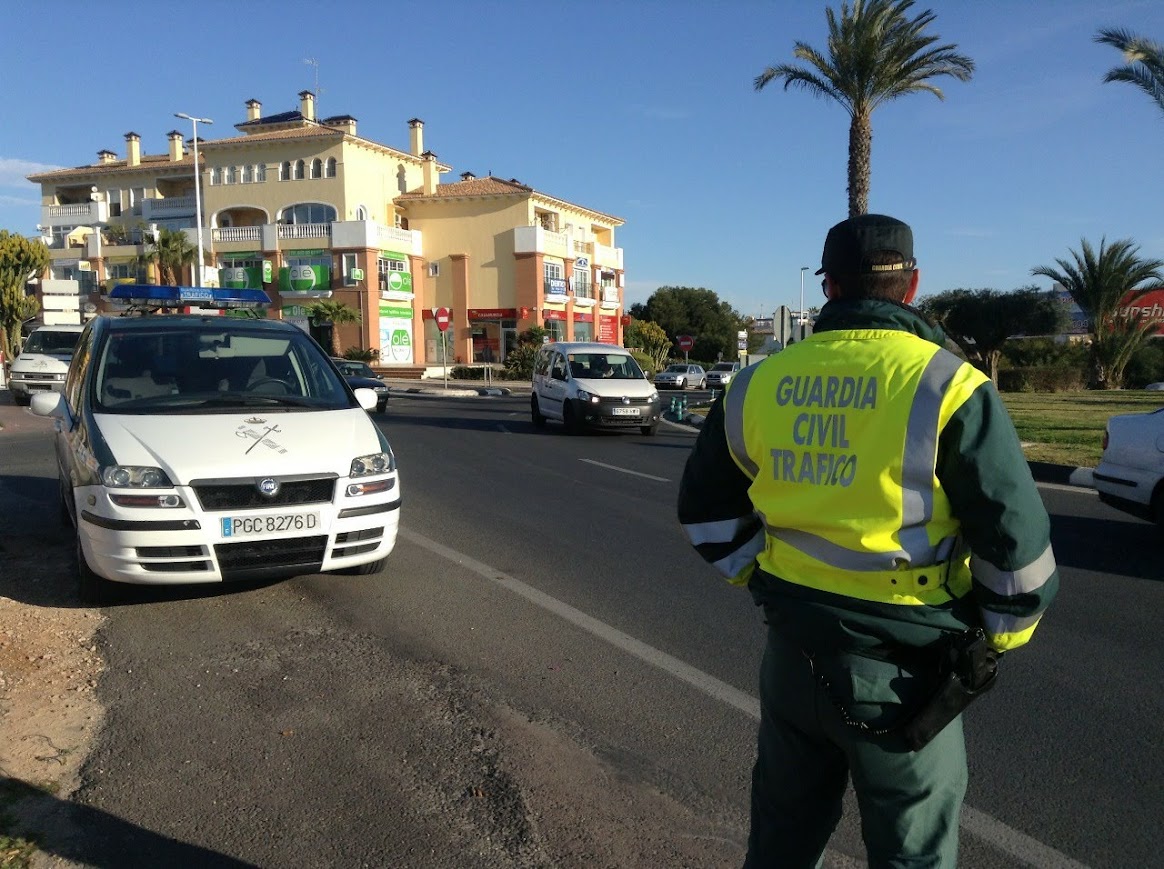
Four people have been taken into custody by the Guardia Civil on suspicion of participating in highway robberies in the province of Castellón. The offenders, who are also being investigated for other assaults on Alicante highways, have been apprehended in two operations.
Romania has issued a search and arrest warrant for one of the detainees on suspicion of attempted murder and serious injury. As a suspected member of a gang that committed violent robberies in AP-7 and A-7 service areas, he was apprehended during the initial operation.
In Castellón, the detainee was stopped on the N-340. Upon confirming his identity, it was also found that he had a second search warrant in Germany, court requisitions in Spain, and fabricated documents.
Along with these antecedents, the Guardia Civil has been able to connect him to a number of robberies, including two in Cabanes and six others in Burriana, two in the municipality of La Vila Joiosa in Alicante, and one in Benicarló.
Following the discovery of a pattern of assaults on these highways, where the perpetrators employed luxury cars for their escapes and movements, the inquiry got underway in February of last year.
As a consequence, three property-theft specialists who reportedly operated on the AP-7 and exploited rest stops and service stations were apprehended during the second operation.
When the agents were notified of a robbery in the town of Fuente de la Higuera, the investigations got underway. After locating the suspects, the operation led to their arrest.
Numerous stolen personal belongings and a sizeable sum of money were discovered in the car they were riding in. Their suspected involvement in at least ten robberies—two in La Vila Joiosa, three in Burriana, and five in Xeresa—is the subject of an investigation.
The Court of Nules and the National Court have ordered the four prisoners to be imprisoned after they were brought before them together with the processed reports. Officers from the Burriana Guardia Civil’s Main Post conducted the operation as part of the province’s communication routes’ surveillance apparatus.
Discover more from Costa Blanca Daily
Subscribe to get the latest posts sent to your email.
-

 Costa Blanca2 weeks ago
Costa Blanca2 weeks agoMan sought for robbery and fraud in Amsterdam has been caught in Alicante
-
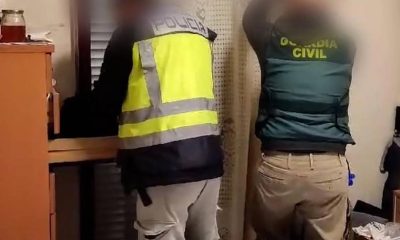
 Costa Blanca2 weeks ago
Costa Blanca2 weeks agoIn Alicante, a criminal group that specialised in robberies at pharmacies and banks has been dismantled
-
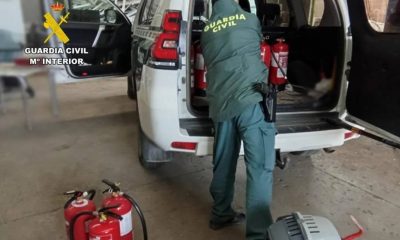
 Costa Blanca2 weeks ago
Costa Blanca2 weeks agoMan stole fire extinguishers to sell as scrap metal
-

 Costa Blanca2 weeks ago
Costa Blanca2 weeks agoElche’s H&M shop closing
-
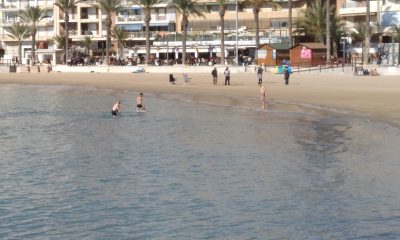
 Costa Blanca2 weeks ago
Costa Blanca2 weeks agoTorrevieja beach bars placed out to tender, but they won’t open until summer
-
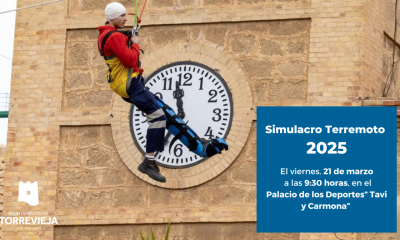
 News2 weeks ago
News2 weeks agoTorrevieja earthquake simulation CANCELLED
-
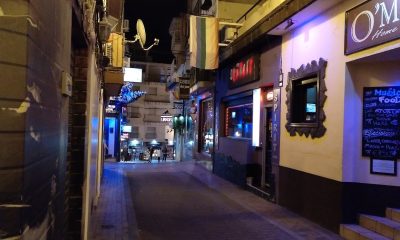
 Costa Blanca2 weeks ago
Costa Blanca2 weeks agoSticky Vicky’s daughter quits mum’s iconic Benidorm show
-

 Costa Blanca2 weeks ago
Costa Blanca2 weeks agoElche sets the regulations for riding bicycles and e-scooters







